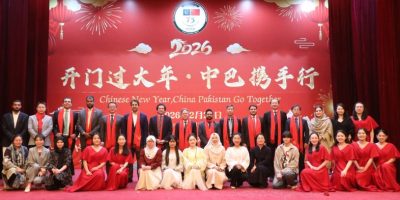Pak’s first DC power transmission talents passing down most advanced technologies

DNA
ISLAMABAD, Jan. 18: Pakistan’s first DC power transmission talents is passing down most advanced technologies, according to China Economic Net (CEN).
At Matiari Converter Station, the starting point of Pakistan’s power transmission artery, the 886-km Matiari to Lahore ±660kV HVDC Transmission Line, Mir Arslan Ali is training junior engineers.
As one of the founding employees of the project Pakistan’s first DC power transmission talents, Mir Arslan Ali, Assistant Duty Officer of the Control and Protection Department, is pleased to see that the state-of-the-art technology is being passed on among local technicians.
From the completion of the project in 2020, the number of trained DC power transmission engineers has nearly doubled, growing from 16 to nearly 30.
On the site of the first HVDC transmission project in Pakistan, the engineers who are bound to become the backbone of Pakistan’s power transmission sector are learning different fault situations and the various solutions for the most complex conditions.
“While China’s most advanced power transmission technology offers a new starting point for the development of power transmission in Pakistan, we take up the baton and impart the state-of-the-art knowledge to the local staff to sustain its safe operation and make the strongest power equipment worthwhile”, Mir Arslan Ali told CEN in an interview after he received the award for outstanding Pakistani staff in CPEC projects from the Chinese Embassy.
Since being put into operation in September, 2021, the project has transmitted approximately 20.6 billion KWH of cumulative electricity, providing consistent, high-quality and clean electricity for nearly 10 million local households.
The transmitted power accounts for about one-sixth of Pakistan’s entire grid. It not only helped Pakistan solve the problem of grid load distribution and uneven resources, but also provided at least 7,000 employment opportunities during the construction period and carried out about 8,000 training sessions for Pakistani staff.
Related News

Beijing, Islamabad reaffirm all-weather strategic partnership
ISLAMABAD, FEB 22 /DNA/ – On the occasion of the Chinese Spring Festival (Year ofRead More

China wants ‘new level’ in Germany ties, Beijing’s FM tells Merz
MUNICH, FEB 15: China’s top diplomat Wang Yi told German Chancellor Friedrich Merz that BeijingRead More


Comments are Closed